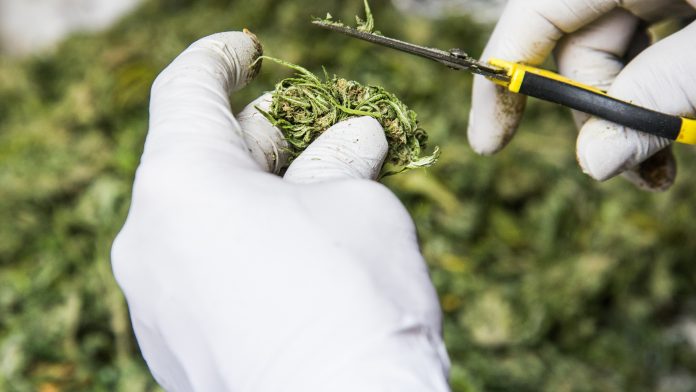
Washington State University researchers could provide government regulators with powerful new genetic analysis of the chemical characteristics of cannabis.
Research from Washington State University, USA, could provide government regulators with new tools for addressing a crowd of commercial claims and other concerns as non-medical marijuana, hemp and CBD products become more commonplace. Regulators focus on levels of the psychoactive compound THC and just a handful of the more than 90 other cannabinoids. The industry makes various claims about different strains, but they defy objective analysis – and now researchers have conducted thorough genetic analysis of cannabis.
A haze of confusion
Mark Lange, a professor in WSU’s Institute for Biological Chemistry says: “There is a reason why all these strains have different names – because a lot of them are very different.”
“But some strains with different names are actually very similar. The bottom line is there is a lot of confusion.”
Lange and his colleagues analysed genetic sequences from nine commercial cannabis strains and found distinct gene networks orchestrating each strain’s production of cannabinoid resins and terpenes, volatile compounds behind the plant’s powerful aroma.
Budding information
Published in the journal Plant Physiology, people can start to sort out a variety of issues that are already emerging as recreational cannabis is legal in 11 states, including the entire West Coast of America, and hemp is legal across the country.
Lange’s analytical method, for example, can be used to clearly delineate between psychoactive cannabis and hemp, which by law has to have less than 0.3% THC. It might help identify the smell that elicits complaints from the neighbours of cannabis farms, opening a way to breed and grow something easier on the nose. It can test the health claims of cannabidiol, or the alleged synergy, known as the ‘entourage effect’, between cannabis compounds.
Details of the research
Lange is an expert on trichomes, the resin-producing glands of plants like mint. But in this case, he could not touch the plant if he was to comply with federal and university policy on cannabis research.
All the material was handled by EVIO Labs, a private cannabis testing company licensed by the Oregon Liquor Control Commission. Anthony Smith, an EVIO biochemist and co-author, drew RNA from each strain by abrading trichomes with glass beads and filtering the material.
A third party sequenced the RNA. In the end, the research team touched only a high-resolution data set that clearly marked both the genes of each strain and their end products.








Hello everybody i don’t know if is illegal here but we are a group of dispensary partners in the
states
and we mostly sell medical marijuana,medical cartridges,medical marijuana oil,wax,distillate,all are
also prescribe and also we have our license to ship to mostly patients for example cancer patients so
here is our website link for more inquiries and also how to purchase. visit this website and you will
have no worries we are very discrete in this kind of situation